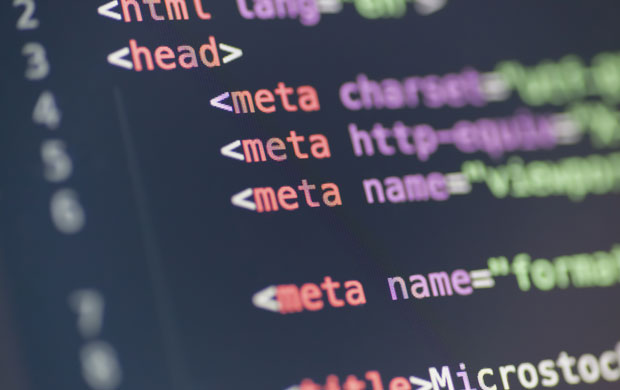Learning to code, regardless of the path a child chooses to take, is crucial today. Research shows us that this knowledge will be important in any career. As both a female leader in technology and a mother of a 10-year old boy, I am acutely aware of its critical importance in both my professional and personal life. Coding is a necessary literacy in this technological age.
Computer coding is a part of everything and is everywhere in the world around us. Scientific and technological innovation are cornerstones of our global economic system. Our economy, our well-being… everything depends on it.
It is not just important in technology-related fields. Coding is vital in manufacturing, healthcare, farming…virtually any industry has a coding component. The question that remains should not be “why?” but “how?” How can I inspire my child to learn to code, when should I start, and what are the many benefits?
How Can I Start?
It is the parent’s job to encourage children’s interests and help them develop life skills. My personal philosophy is to start children coding early, and make it fun!
As we all know, learning by doing is much more impactful. Children are innately curious and love to explore. They love discovery… picking things up, examining them, smelling them, touching them, and asking why?
Coding Demystified
Coding is easier than you may think! Coding is extremely easy for children to grasp and thus, after a brief introduction and some exploration, rudimentary skills can be mastered.
This basic knowledge helps children interact with the technology around them versus passively consuming it. Through this quick mastery, they build their self-confidence. As children become more confident, it encourages them to press further in their coding education and learn more.
Coding Develops and Fosters Creativity
The reality is technology is going to evolve at lightning speed in the future, but the set of skills a child develops from learning to code will be there for a lifetime. Children develop creativity by experimenting and making mistakes. They learn through coding education that there is more than one way to do something. Just keep trying!
One of my favorite quotes is from Margaret Meade: “Children must be taught how to think, not what to think.” Coding teaches children how to think!
Coding Is Like Learning a New Language
Learning a new language teaches children another way to communicate. It is exciting it for a child to learn how to communicate more directly with technology around them. As with learning any language, children should be exposed to coding at an early age.
Coding teaches logical thinking and strengthens both written and verbal skills. Children who learn to code better understand how to organize their thoughts. Coding is a language skill that opens the world to children.
Coding Helps Children With Math
Learning to code helps children visualize abstract concepts. Through coding, children learn how to apply mathematics to real world issues and formulate creative solutions.
Coding makes math more practical, appealing and fun!
Coding Teaches Collaboration
In creative environments there are no right answers and no guidebooks. Through the discipline of coding, children seek validation from their peers and tend to work in groups. They learn to collaborate, to give and receive criticism in a positive way, and to incorporate feedback in what they are doing.
The development of these skills is extremely important in their later lives and careers, as is the understanding that there are many solutions for the same problem. Children learn through coding that knowing how to ask the right questions is sometimes more important than having the right answers.
Why Coding Is Important to Me
My biggest inspiration in everything I do is my son. He is fascinated with science and technology and can’t help himself from constantly asking “how does this work?” about almost everything around him.
As an innovator in the tech space, I want to enable a new generation to feel empowered by technology and feel comfortable in being proactive with it, rather than being beholden to it and consuming it passively.
Learning to code is critically important in this process. As a parent, I plan to encourage my child to learn to code and continue to evolve and expand his skills as long as possible, and encourage him not to give in to any moments of discouragement. I want him to push beyond his limits as often as he can and reap the corresponding benefits.
For parents looking to increase their children’s exposure to coding, I have personally found that great programs are available at local libraries, museums, summer camps and learning centers to supplement what children are exposed to in school. A variety of STEM-related products are available as well.
The Educator’s Role
I also believe that coding education and its importance must be understood by the educator. Educators know that making math and science both fun and interesting helps students do much more than just learn.
Learning through play and “by doing” is critical — it is entertaining and educational. Coding education should be tailored to a student’s abilities and educational level as well. This type of modification and evolution of subject matter by educators is critical in the learning process.
Future Employment
Almost every job in the future will require basic understanding of math and science and software. As an employer, however, I still find it challenging to fill coding-related jobs.
I am here to tell you that aside from being lucrative, jobs that require coding are both interesting and readily available!
The Diversity Mission
Although coding education has the potential to break the traditional gender roles, there is still an under-representation of women and minorities in related fields. Because of my personal experiences, it is of great importance for me to promote diversity and inclusion in the workplace.
I have made it my personal mission to hire and cultivate women in technology. I encourage both parents and educators to help me in this mission by insisting upon and supporting coding education for all children worldwide, especially for girls and minorities.












































